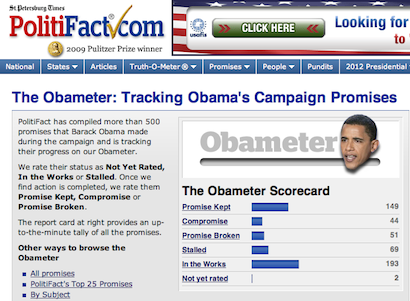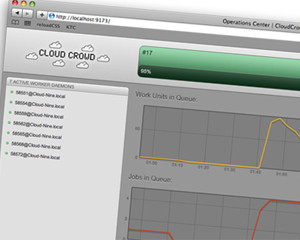There was a fascinating session at the World Editors Forum today titled ‘looking beyond the article’, which saw a number of speakers discuss the news game, and the ways news outlets are using gamification methods to offer wider context and understanding to news stories, events and scenarios.
One of the first speakers, Bill Adair, who is founder and editor of PolitiFact said he felt there was “a tremendous lack of imagination” in the industry in how to take advantage of new publishing platforms.
It’s like we’ve been given a brand new canvas with this whole palette of colours and we’re only painting in grey. We need to bring all the other colours to this new canvas.
He later said:
Many of us are slaves to our content management systems, which are slaves to the old way we were publishing. We have to think beyond that.
Scott Klein, editor of news applications at ProPublica, shared many examples of news apps which are doing just that. Klein’s presentation of these examples can be found at this link.
He told the conference that as well as adding context a news app has the ability to personalise and place the user at the centre of the story and offer them the ability to see the impact on them, “it doesn’t just tell a story, it tells your story”, he said.
You can hear him speak more about this in the audio interview below:
Scott Klein of ProPublica by journalismnews
Another member of the panel was Bobby Schweizer, co-author of Newsgames: Journalism at Play. He said video games give the opportunity to look beyond the traditional news story and called on conference delegates to try and “make something”.
And he himself is trying to help make this happen, working on the development of new software called the Cartoonist to help journalists produce their own news games, a project which won Knight News funding last year.
In the short audio clip below I ask him more about what this software will offer journalists:
Bobby Schweizer, co-author of Newsgames by journalismnews
When asked about the implications of news games being able to be created quickly and potentially running alongside more breaking forms of the story, Schweizer said news outlets and journalists need to ask themselves why they are making the game.
You have to ask what do you have to gain over a written article? If you only need to answer who, what, when and where maybe you don’t need a game. This has to be a balance that each organisation will have to find for themselves.

